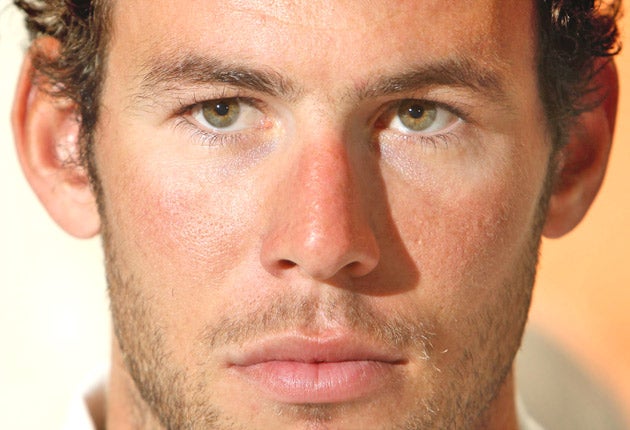Cycling: Cavendish - the sport is more dangerous now
World's leading sprinter claims increased pressure is causing riders to take risks in search of higher finishes

Your support helps us to tell the story
From reproductive rights to climate change to Big Tech, The Independent is on the ground when the story is developing. Whether it's investigating the financials of Elon Musk's pro-Trump PAC or producing our latest documentary, 'The A Word', which shines a light on the American women fighting for reproductive rights, we know how important it is to parse out the facts from the messaging.
At such a critical moment in US history, we need reporters on the ground. Your donation allows us to keep sending journalists to speak to both sides of the story.
The Independent is trusted by Americans across the entire political spectrum. And unlike many other quality news outlets, we choose not to lock Americans out of our reporting and analysis with paywalls. We believe quality journalism should be available to everyone, paid for by those who can afford it.
Your support makes all the difference.Mark Cavendish has warned that cycling is becoming far more dangerous because of the increasingly intense pressure on riders to produce top performances.
"These days the results appear so fast on the internet, without a report of what's actually happened [that] everybody's got a point to prove, they're fighting and fighting and fighting," the British sprinter said. "There's a real pressure to deliver and a lot of risks are being taken in the peloton."
Despite regularly racing at speeds of up to 70kmh, crammed into a 180-strong peloton on a two-lane road with barely a hand's width between each rider – as Cavendish will be doing day after day in the Tour de France, which begins a week on Saturday – the Briton says he is not personally feeling any increase in pressure.
"I don't give a shit about what's said, I'm a sprinter, it's my job to get on the results sheet," he said. "But a lot of other riders are much more nervous, everybody's feeling the pressure."
The HTC-Highroad rider blamed bloggers for the increasingly dangerous racing: "A lot of of the journalism is quite bloggy, opinions rather than facts, and riders try to get in the results to impress those journalists.
"It's like when you were an amateur and you had to prove yourself all the time to become professional. Nowadays, it's like that in the professionals, too."
Questions have been raised in recent months about safety after the Belgian Wouter Weylandt crashed and died during the Giro d'Italia last month and, last week, the Colombian cyclist Juan Mauricio Soler had a life-threatening accident during the Tour de Suisse.
With the Tour de France just nine days away, Cavendish says he tries to keep thoughts of such accidents out of his mind. "You have to put it to one side, it's not nice, but that's the job we're paid to do," he said.
While he declined to answer questions about reports linking him with Team Sky next year, Cavendish's current priority will be to win the green jersey at the Tour de France, a prize which narrowly eluded him in both 2009 and 2010 despite racking up more stage victories in each – six in 2009 and five last year– than all the other sprinters combined. This year race organisers have altered the system by which points are awarded in the intermediate sprints – awarded to the first rider at certain points mid-stage – to try and ensure a result that more closely reflects Cavendish's near-total dominance.
"My way to win the green jersey is still to take as many stages as possible and limit my losses on the intermediate sprints," Cavendish said, "that's not going to change. There should be five bunch sprints, seven possibles. But as a team, we're not going to commit ourselves to pulling back breaks, because the green jersey has never been decided on the intermediates."
Cavendish says he is so well-protected by his HTC-Highroad squad's lead-out train of eight team-mates in the final kilometres of flat stages that he feels nostalgic for the times when he had to fend for himself in the bunch's mass dash for the line.
"I miss it in a way, I miss having to think for myself, it brings back why I loved racing and started doing it in the first place," he said. "The way we race at the Tour is a bit monotonous, I'm at the end of a line of eight team-mates all day, I don't talk to anybody. But if that's what I've got to do to win stages, I'll settle for it."
Although Cavendish has now racked up a staggering 15 Tour stages in three years – only all-time cycling great and five-times tour winner Eddy Merckx, with 18, has ever taken more in so little time – the Briton is keeping his feet firmly on the ground and says he will settle for far fewer this year.
"This is the Tour de France, guys make careers out of one stage victory. As a pre-race objective, I'll settle for one." The chances of Cavendish taking rather more than that, though, are very high indeed.
Join our commenting forum
Join thought-provoking conversations, follow other Independent readers and see their replies
Comments